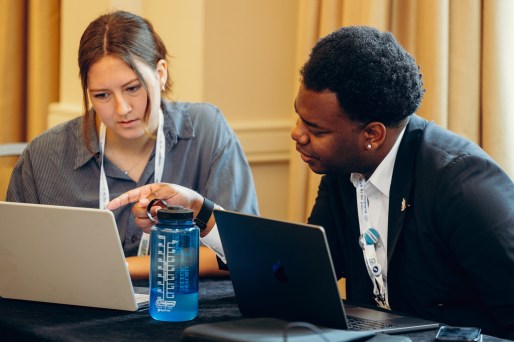The Place of stnews.live in the Social Media News Ecosystem
The Relevance of Fact-Checking worldwide of News Online
The occurrence of false information in today's on-line news landscape has gotten to startling degrees. Fact-checking companies play a crucial function in counteracting this trend. They confirm claims and improve the credibility of journalism. Nevertheless, the performance of these organizations commonly rests on their techniques and public perception. As audiences navigate this complex atmosphere, the ramifications of their searchings for might form the future of news usage and trust. What does this mean for the integrity of details progressing?

The Increase of Misinformation in the Digital Age
How has the arrival of digital modern technology added to the spread of misinformation? The fast growth of the web and social networks platforms has actually facilitated the circulation of information at an extraordinary speed. Customers can share posts, video clips, and viewpoints with a mere click, usually without validating the content's accuracy. Algorithms focus on sensational or mentally charged material, resulting in a spreading of deceptive narratives that record interest.
In addition, the anonymity paid for by digital systems permits individuals to spread incorrect information without liability (stnews.live). Misinformation flourishes in resemble chambers, where users are revealed mainly to viewpoints that enhance their beliefs, even more lodging fallacies. The saturation of info can bewilder customers, making it challenging to determine credible sources from undependable ones. False information has actually ended up being a pervasive issue in the digital landscape, affecting public opinion and count on in genuine news sources.
The Role of Fact-Checking Organizations
Fact-checking organizations play an important role in enhancing the trustworthiness of journalism by confirming cases made in report. Their efforts are vital in combating false information, guaranteeing that exact details dominates in the digital landscape. By holding media electrical outlets responsible, these organizations add considerably to educated public discussion.
Enhancing Credibility in Journalism
While false information multiplies in the digital age, fact-checking organizations play an essential role in boosting the reliability of journalism. These organizations carefully validate cases made in news write-ups, public declarations, and social media sites posts, guaranteeing that details distributed to the public is precise and trustworthy. By providing independent evaluations, they work as a vital source for journalists, assisting them maintain high requirements of integrity. Furthermore, their efforts promote openness in media, fostering public count on. As audiences become increasingly discerning, the visibility of reputable fact-checking entities can identify dependable news sources from those that may spread out frauds. Ultimately, the dedication of fact-checking organizations to maintain reliability is crucial for the health and wellness of democratic discussion.
Combating False Information Efficiently
As false information remains to spread out rapidly throughout electronic platforms, the function of fact-checking organizations becomes progressively critical in the battle for exact information. These organizations work as guard dogs, scrutinizing cases made by somebodies and media electrical outlets to ensure responsibility. By employing extensive study techniques and expert evaluation, they confirm realities and clarify misleading stories. Their findings are shared via numerous channels, informing the public and cultivating important thinking. In enhancement, partnerships with social media sites systems boost their reach, enabling punctual flagging of incorrect info. As electronic proficiency expands, the impact of fact-checking organizations is vital in encouraging audiences to discern reality from fallacy, eventually adding to a much more enlightened society.
Just How False Information Affects Public Assumption
Misinformation significantly threatens rely on media, leading audiences to question the reputation of news resources. Therefore, individuals frequently gravitate towards electrical outlets that reinforce their present beliefs, adding to the polarization of point of views. This vibrant creates a fragmented details landscape, where shared comprehending comes to be progressively tough to achieve.
Count on Media

Rely on media has actually become significantly delicate in the digital age, where the fast spread of incorrect details can skew public assumption. As false information proliferates across social media and online systems, audiences typically discover it challenging to recognize qualified resources from unstable ones. This uncertainty cultivates hesitation, leading lots of individuals to examine the motives behind news coverage. Trust in developed media electrical outlets has actually decreased, as customers progressively turn to alternate sources that may do not have rigorous content standards. This erosion of depend on not just influences private beliefs yet additionally threatens the collective capacity to involve in informed conversations. Eventually, the honesty of journalism goes to stake, highlighting the crucial demand for efficient fact-checking to recover confidence in the media landscape.

Polarization of Opinions
The increasing hesitation toward standard media has added to a growing polarization of viewpoints among the general public. Misinformation, typically distributed via social networks and on the internet platforms, plays a considerable duty in shaping distinctive ideological divides. Individuals regularly seek details that lines up with their pre-existing beliefs, enhancing their perspectives while dismissing opposing perspectives. This resemble chamber result escalates read divisions, causing a fragmented public discourse where consensus ends up being significantly elusive. In addition, sensationalized narratives flourish in this atmosphere, even more skewing public assumption and promoting distrust in reputable resources. As polarization rises, the necessity for effective fact-checking ends up being extremely important to link spaces and advertise notified discussions, inevitably making certain a much more cohesive culture efficient in steering complicated problems.
Strategies for Efficient Fact-Checking
Reliable fact-checking depends on a systematic technique that includes thorough research study, verification of sources, and crucial analysis of cases. A foundational strategy is cross-referencing information from numerous reliable resources to confirm its precision. Fact-checkers frequently make use of specialized databases and archives to map the beginning of specific statements, ensuring that the reported information lines up with documented evidence.
One more necessary technique includes looking at the context in which insurance claims are offered. Misleading information can emerge from out-of-context quotes or discerning information usage. By analyzing the more comprehensive story, fact-checkers can recognize possible predispositions or misinterpretations.
Engaging with experts in pertinent fields can give clarity and insight that improves the fact-checking procedure. This cooperation can reveal nuances that laypeople might forget - stnews.live. Eventually, a regimented method integrating these techniques promotes a more informed public, enhancing the integrity of information disseminated in the digital age
The Impact of Social Media on News Consumption
Just how has read what he said social networks changed the means people take in news? The emergence of platforms like Facebook, Twitter, and Instagram has notably transformed news consumption patterns. News is currently distributed swiftly, permitting users to access real-time updates and involve with web content through sort, shares, and remarks. This immediacy has actually cultivated a choice for bite-sized details, typically at the expenditure of extensive analysis.
Moreover, social media allows customized news feeds, where formulas curate web content based on user choices, creating echo chambers that may limit direct exposure to diverse perspectives. The function of standard news outlets has actually reduced as individuals progressively depend on peer suggestions and trending subjects. The reliability of details is frequently endangered, as sensationalism can overshadow valid reporting. Generally, social networks has improved news intake, stressing rate and personalization while challenging the standards of journalistic integrity.
Equipping Target Markets to Determine Reliable Sources

Additionally, checking out the authorship and business history of news write-ups can disclose prospective predispositions. Cross-referencing information across numerous reputable electrical outlets additionally improves the confirmation process. Making use of electronic tools, such as internet browser expansions that rate the integrity of websites, can additionally help in identifying trustworthy information. By actively engaging with these resources and growing a critical mindset, target markets can better outfit themselves to determine dependable news resources, inevitably promoting a more educated society among the complexities these days's media environment.
The Future of Journalism and Fact-Checking
As the media landscape develops, the future of journalism and fact-checking deals with both tests and opportunities. The increase of electronic platforms has equalized information dissemination, permitting diverse voices to arise. This has likewise led to the proliferation of false information, necessitating robust fact-checking mechanisms. Reporters will increasingly count navigate here on technology, consisting of AI tools, to confirm facts quickly and effectively.
Cooperation between news companies and fact-checking entities is prepared for to reinforce credibility and openness. Audience engagement will play a crucial role, as notified visitors end up being considerable partners in determining trustworthy content.
The need for responsibility and accuracy is most likely to grow, pushing reporters to support high requirements in their reporting. Eventually, the future of journalism may depend upon its capacity to adjust to technical improvements while preserving journalistic stability, making certain that fact-checking remains a cornerstone of reputable news.
Regularly Asked Questions
Exactly How Can I Report False Information I Come Across Online?
To report misinformation run into online, people can utilize platform-specific reporting devices, supply clear proof, and share the information with fact-checking organizations. Involving with neighborhood discussions can also help elevate understanding about the misinformation.
What Prevail Indications of Misinformation in News Articles?
Usual signs of false information in newspaper article consist of sensational headlines, lack of credible sources, emotional language, irregular truths, and absence of author credentials. Viewers must seriously evaluate web content for these signs to discern accuracy.
Just How Do Fact-Checkers Validate Resources?
Fact-checkers verify sources by cross-referencing info with legitimate databases, getting in touch with professionals, and examining the initial context of cases. They likewise examine the dependability of the sources, ensuring precise and reliable information for public usage.
What Lawful Actions Can Be Taken Against False information?
Lawsuits against false information might consist of vilification legal actions, cease-and-desist orders, and governing fines. Targets can prosecute through civil courts, while some territories enforce penalties or sanctions on platforms disseminating false info.
Exist Apps for Fact-Checking News On-The-Go?
Numerous applications exist for fact-checking news on-the-go, including Snopes, FactCheck.org, and PolitiFact. These applications help users verify claims rapidly, promoting educated decision-making and fostering a more critical strategy to consuming news in real-time.